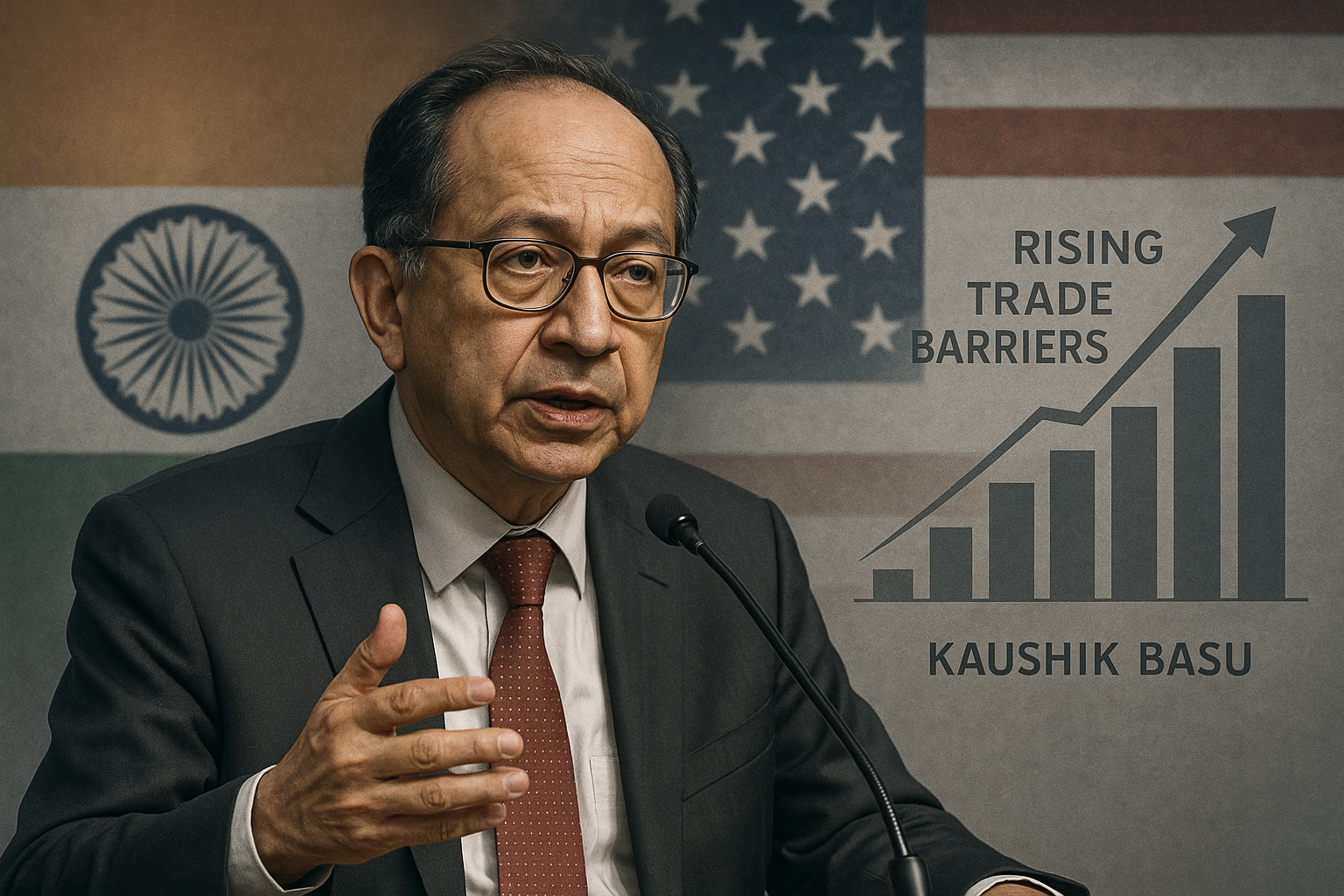Former World Bank Chief Economist and noted academic Kaushik Basu expressed sharp criticism of the U.S. trade stance toward India, calling a recent move by President Trump to impose a 25% tariff on Indian imports from August 1 an “unfortunate turn” in bilateral economic relations. The announcement comes amid stalled trade negotiations and heightened geopolitical tension.
Basu’s Perspective: Why This Matters
-
Basu highlighted that while U.S. officials justify the tariff citing a $41 billion trade deficit with India, this gap is much smaller than deficits with China ($270 billion) or Vietnam ($113 billion).
-
He described Trump’s characterization of India as a “big abuser” as bewildering and noted that India’s strategic alignment with President Trump may be inadvertently fueling unilateral economic pressures.
-
Basu warned of notable risk to India’s agriculture and dairy sectors, which are sensitive to trade liberalization demands, and emphasised the need for policy sensitivity toward farmers facing economic fragility.
Trump’s Justification: Trade, Defense, and Penalties
President Trump explained the tariff by citing India’s elevated import tariffs, “obnoxious non-monetary trade barriers,” and its reliance on Russian military and energy imports—with an additional undisclosed “penalty” applied for this exposure.
Despite harsh rhetoric, he reiterated that India remains a “friend,” though described as a difficult trade partner.
Impact & Stakeholder Concerns
Agriculture & Organised Farms
-
Basu voiced concern that Indian farmers may lose out if concessions demanded by the U.S. under future trade deals pressurise import barriers and trade protections.
Trade Diplomacy and Negotiations
-
India’s economy—recently projecting 6.2% growth for FY 2026—could face headwinds if the tariff limits exports in sectors like textiles, pharmaceuticals, and electronics. The timing complicates upcoming August 2025 trade talks, with U.S. teams visiting Delhi to resume stalled dialogue.
Market Responses
-
Analysts expect short-term volatility in the rupee and commodity-sensitive equities, particularly if heightened import tariffs feed into inflation or capital flows.
Why This Shift Is Concerning
-
Basu described the policy shift as a departure from India’s traditional image as an independent global voice, criticizing the symbolic overreach that appears to stem from perceived strategic alignment with certain U.S. regimes.
-
He underlined the disproportionate impact on India’s smaller export market relationship with the U.S. yet facing aggressive sanctions. The assertion is that India’s voice may no longer carry the same dignity as before.
Possible Outcomes and Strategic Response
-
Basu remains cautiously optimistic that trade negotiations will resume and an agreement may still materialize—possibly before long—but warns that any deal must safeguard Indian interests in sensitive sectors like agriculture.
-
Exporters are urged to diversify markets, reduce geopolitical dependency, and mitigate risks from abrupt tariff rises.
Conclusion
Kaushik Basu’s critique frames U.S policymaking toward India as misaligned with India’s economic weight and bilateral partnership. The 25% tariff mark, though officially framed around trade imbalances and energy ties with Russia, has broader implications—politically symbolic, economically impactful, and reflective of shifting dynamics in global diplomacy. India’s next move—through diplomacy, export diversification, and policy assertiveness—will be pivotal in navigating this turbulence.












